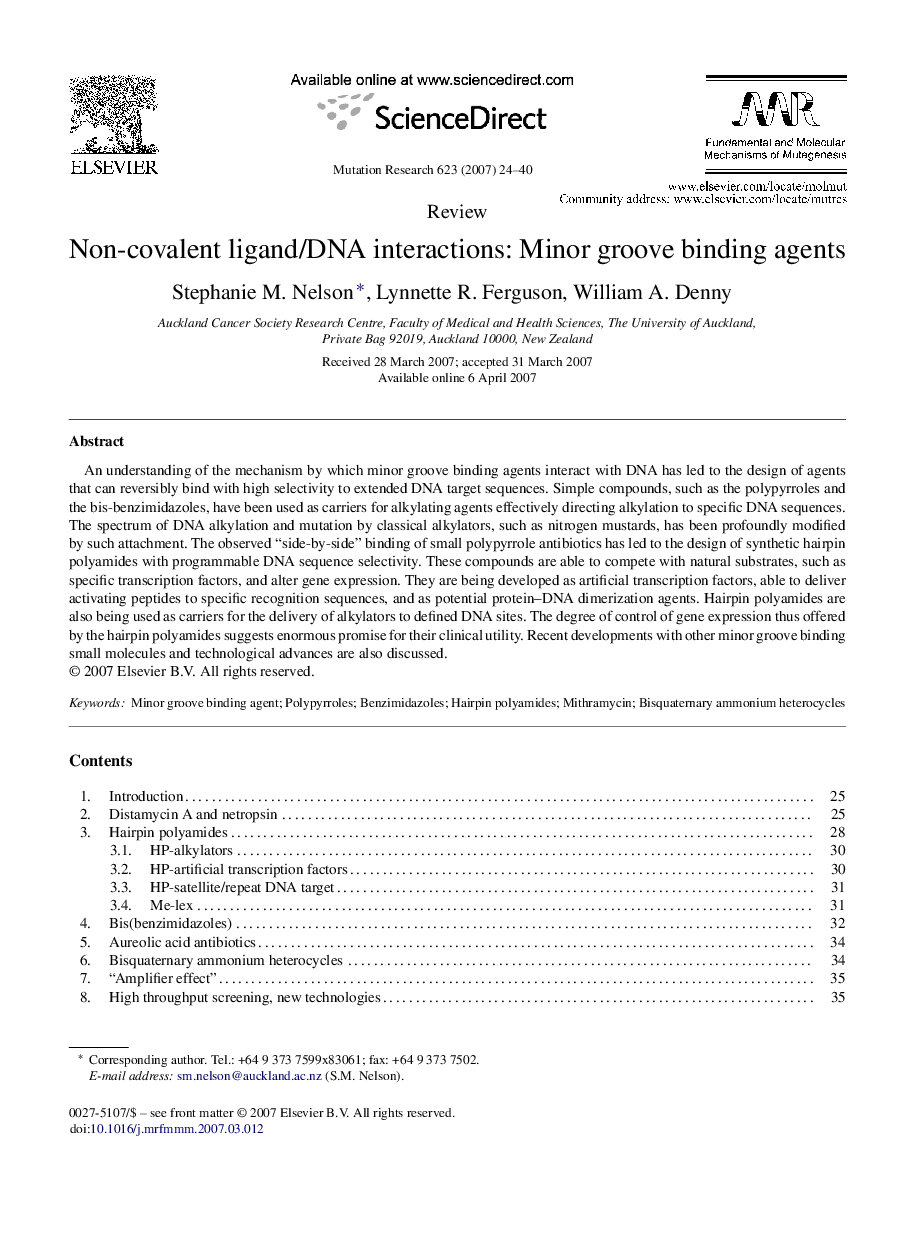| Article ID | Journal | Published Year | Pages | File Type |
|---|---|---|---|---|
| 2147288 | Mutation Research/Fundamental and Molecular Mechanisms of Mutagenesis | 2007 | 17 Pages |
An understanding of the mechanism by which minor groove binding agents interact with DNA has led to the design of agents that can reversibly bind with high selectivity to extended DNA target sequences. Simple compounds, such as the polypyrroles and the bis-benzimidazoles, have been used as carriers for alkylating agents effectively directing alkylation to specific DNA sequences. The spectrum of DNA alkylation and mutation by classical alkylators, such as nitrogen mustards, has been profoundly modified by such attachment. The observed “side-by-side” binding of small polypyrrole antibiotics has led to the design of synthetic hairpin polyamides with programmable DNA sequence selectivity. These compounds are able to compete with natural substrates, such as specific transcription factors, and alter gene expression. They are being developed as artificial transcription factors, able to deliver activating peptides to specific recognition sequences, and as potential protein–DNA dimerization agents. Hairpin polyamides are also being used as carriers for the delivery of alkylators to defined DNA sites. The degree of control of gene expression thus offered by the hairpin polyamides suggests enormous promise for their clinical utility. Recent developments with other minor groove binding small molecules and technological advances are also discussed.
